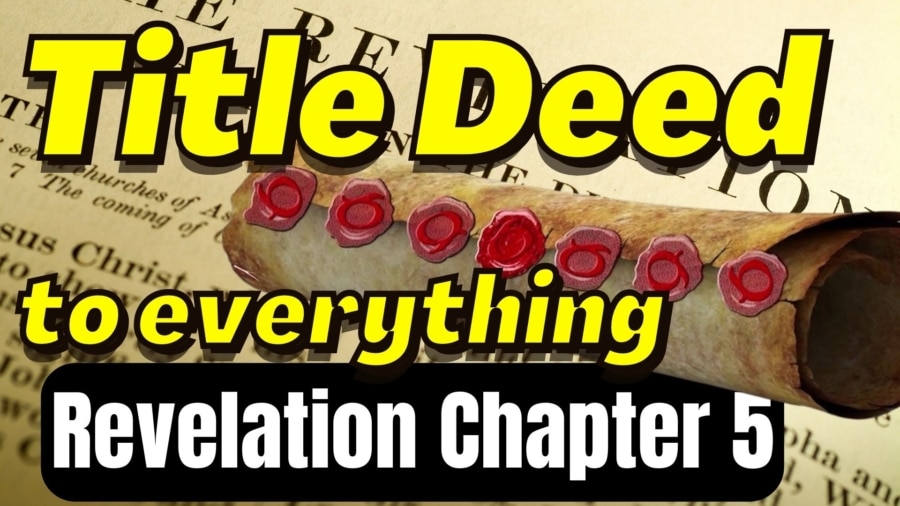As we study the message of Christ to the seven churches, we will do well to keep in mind four interpretation aides given by Dr. C. I. Scofield:
- Local meaning—these are seven actual churches existing in John’s time and to which he ministers.
- General meaning—these conditions may be found in churches throughout the Church Age, and this gives us a key for evaluating a local church by the “mind of Christ,” (1 Cor. 2:16).
- Personal meaning—each message includes the challenge “to him who overcomes” and “[him] who has an ear.” Thus, we can evaluate our own lives by this.
- Prophetic meaning—these seven churches are chosen in this order to illustrate church history from the time of John to the Rapture.
Two major trends are seen running through this account. First, there is the purifying process going on for those who are true believers—the “overcomers” by faith, 1 John 5:4–5. Second, there is an increasing apostasy of dead human religion. At the Rapture, the Body of Christ is removed, but apostate Christendom goes on to become the “great whore” of Revelation 17.
Ephesus—Revelation 2:1–7
The church of Ephesus was founded by the Apostle Paul (Acts 18:18–21; 19:1–20). John came there before the destruction of Jerusalem and made Ephesus the center of his circuit ministry. “Ephesus” means “beloved,” yet this church is rebuked for losing its love for Christ. They had many good “works” but had “fallen” from their occupation with the person of Christ.
Historical Ephesus illustrates church history from 35–100 AD. Note Satan’s attempt to infiltrate the church through the Nicolaitans. The word comes from niko (“to conquer”) and laos (“the people”). This attempted establishment of a “church hierarchy,” which distinguished between “clergy” and “laity,” was repulsed in the first century.
The warning to the believer who “has an ear” and would be an “overcomer” is to constantly maintain personal fellowship and love for Christ as the greatest of spiritual priorities. Obviously, we can only love the Living Word by loving and living the written Word. Revelation 2:5 gives the road of recovery as remembrance, repentance, and return to first acts of love for Christ. Here, we see the beginning of the cooling process leading to the Laodicean church.
Note:
- Commended for endurance, their stand against false apostles and the Nicolaitan heresy.
- Condemned for reversionism—the “first love” from which they had “fallen” was the sound doctrine of the book of Ephesians.
Smyrna—Revelation 2:8–11
“Smyrna” means “myrrh,” which was a gum or resin that was crushed to give off a fragrance. Myrrh was also used in embalming the dead. This church was persecuted and suffered greatly. Christ greets them as the One “who was dead, and came to life.” This poor church was rich in God’s sight, for they were faithful in spite of suffering, slander, and death. They are promised the “crown of life” (James 1:12). Note here Satan’s two-fold attack of external persecution and internal infiltration by legalistic Jews whom Christ calls the “synagogue of Satan.”
One of the great martyrs of Smyrna was the Pastor Polycarp, who was a student of John. He was burned at the stake, and won the crown of life!
Historically, Smyrna represents Church history from 100–300 A.D., a period of great persecution by Rome. At this time, Christianity was despised by the world as a collection of ragged, poor, deluded people, yet they were rich before God. When we come to Laodicea, we find a large, rich, respected church that is naked in God’s sight. Is there any question where we are today?
Note:
- This is the edified church.
- This suffering church endured the most and lasted the longest.
- Encouraged but not condemned.
- Smyrna had many great teachers and a maximum number of believers in maturity.
Pergamos—Revelation 2:12–17
“Pergamos” is a compound word meaning “married, exalted.” Pergamos was a rich, influential city of Asia Minor. Yet the church was worldly. She is greeted by Him “who has the sharp two-edged sword,”—the Word of God (Heb. 4:12). She has permitted the infiltration of three heresies. One, Satan had set up his throne here. We find that the teaching of the Babylonian mysteries were actually carried to Pergamos about 133 B.C. These teachings begun in ancient Babylon, would in time become so assimilated by Apostate Christianity as to become “Mystery Babylon.” Pergamos was the center of Caesar worship. Second, the doctrine of Balaam had gained a foothold (Num. 22–25). This was basically a teaching of compromise with the world—Balaam taught Israel to intermarry with the heathen—thus a “marriage” of the Church and the world. Third, the Nicolaitans who were repulsed by Ephesus are accepted in Pergamos.
What begins in apostasy as “deeds,” develops into “doctrines,” which in time becomes “denominations.” The overcomers will receive the “hidden manna,” the deep things of Christ (John 6:31–33; Col. 1:26), and the “white stone,” representing the vote of approval from God.
Historically, Pergamos represents church history from 300–500 A.D. Constantine made Christianity a “state religion” so that it became joined to the heathenistic practices of Rome.
During the period of this apostate union, Damasus, the Bishop of Rome (an unbeliever) was given the title of Supreme Pontiff of the Babylonian mysteries which came to Rome from Pergamos. Thus Satan’s program to “assimilate” the Church through infiltration took a great step forward. This was the age of “heresy,” yet even here there were “overcomers” who stood against the tide, and died a martyr’s death!
Note:
- It is the “surrounded” church.
- Pergamos was one of the most evil cities of the Ancient World. It was here that Satan had his headquarters on earth.
- There were many strong believers in Pergamos, but they were surrounded by religious apostasy.
- They are condemned for allowing apostasy into the church. Idolatry and rituals of ceremonial sex had infiltrated the church.
Thyatira—Revelation 2:18–29
The Son of God greets this church with flaming eyes and feet of judgment! Though there is some approval in Rev. 2:19, the church has become a haven for “Jezebel,” an actual woman who became prominent as a teacher and led people into idolatry and immorality. Though God gave her “time to repent” she would not. She is a preview of the “great whore” (Revelation 17) and so will be cast “into great tribulation” along with her children, i.e., apostate Christendom.
Even in Thyatira some remained faithful, Rev. 2:24–29. They are to hold fast to truth and are promised great authority in Christ’s kingdom for standing against the usurped authority of this Jezebel. They will be decorated with the “morning star,” the reflected glory of Jesus Christ (compare Dan. 12:3, 2 Pet. 1:19).
Historically “Thyatira,” which means “continual offering,” speaks of the age of Romanism, 500–1500 A.D. In Romanism the “once-for-all” sufficiency of the cross is denied for a continual offering of works, penance, and sacraments as a means of salvation. Just as Jezebel will not repent, neither will this system of idolatry as the “Babylon” of the future (cf., Jer. 51:8–9, Rev. 18:4). The “deep things of Satan” are the Babylonian teachings perpetuated by the Roman Church.
Note:
- Again, commended for production and service under pressure.
- However, again as others, condemned for allowing apostasy to enter, along with demonism and occult practices.
- Warned to hold fast.
Gene Cunningham - October 9, 2011
Lesson #1 -- Introduction to Prayer
luk 11:1
If our prayers fail, everything fails. If you are weak in prayer, you will be weak in everything. If your prayers are powerful, you will have an impact on eternity.
This request came because of what the disciples observed about Jesus and how He prayed. Mar 1:35 Prayer was priceless to Christ. Their conscience was convicted by what they observed, so they asked.
Their request came because of what they observed in John the Baptist.
Their request came from God's providential working in their heart. He showed them this was necessary for them.
Their request was motivated by their sense of weakness and apparent need to face the time ahead.
When things are going well, our prayer life starts to suffer.
Seven secrets to prevailing prayer:
Others desperately need us to pray for them. Our nation needs us.
1CO 14:15
Ancient Hebrews - three kinds of prayer: Prayer with words, prayer with groans and sighs, prayer with tears PSA 30:5 PSA 39:12 PSA 56:8 PSA 126:5 heb 5:7
When we fail to pray we are snubbing and rejecting Christ.
praying with understanding: In time of trial, anxiety, and heartache - we instinctively know we need to pray and we do it. We realize we can't solve our problems. We sense we need to call our omniscient and omnipotent God to come through on our behalf. He wants to teach us our need for Him, and His all-sufficiency to meet all our needs and more. You will make great advances in prayer if you go from the standpoint on "what effect does prayer change me?" (as opposed to circumstances).
Principle of humility and meekness - Psa 9:12 Psa 8:2 mat 11:25-26
Principle of obedience - coming to Him with a clear conscious and good motives, cleansed by Christ Himself Joh 8:12
Parable of prayer - prodigal son luk 15:11-32 It teaches us the nature of the Father, as well as our need as the younger and older brother, when we pray wrong we may get what we don't want, and when we pray right we get more than we could imagine. Psa 106:15 ISA 10:15-19 ISA 24:16 The first request was for the gifts, the second request was for the Giver. You can't run far enough away that when you turn around He'll be running to meet you, again, and again, and again. The second request was worthy of robes and sandals of service. Everything He has has been made available to us Eph 1:3 What a shame we write so few checks of faith when we have complete access to His bank account Eph 3:19-20
Practical applications: all power to hear and give is His, there is not lack or reluctance on His part. The right request of one single person is just as powerful as 10,000. We share prayer requests so more of the family can share in the blessing. God honors that. God's power to give is only limited by our unbelief and the hardness of our heart.
Prayer in Courtship: 1. Best prayer in praying for a mate is "not my will, Thy will be done." 2. Most necessary prayer is "God be merciful to me the sinner." 3. Fundamental perspective when praying for a mate "Man looks at the outside, but God looks at the heart." 4. A truth that is always true: "When God gives you His choice, it will take growing in grace and truth to unpack the riches He's given you."
Prayer for married people: 1. Pray that He would change you, instead of asking Him to change them 2. Pray He make you more forgiving, instead of asking Him to make them fail less 3. Pray that God will teach you to forgive and love with the love of Christ, and you will be amazed at how great your mate will become
Scripture References: Luke 15:11-32, Psalms 56:8, John 8:12, Ephesians 3:19-20, Psalms 39:12, Matthew 11:25-26, Ephesians 1:3, Psalms 30:5, Psalms 8:2, Isaiah 24:16, Mark 1:35, Psalms 9:12, Isaiah 10:15-19, Luke 11:1, Hebrews 5:7, Psalms 106:15, Psalms 126:5






























